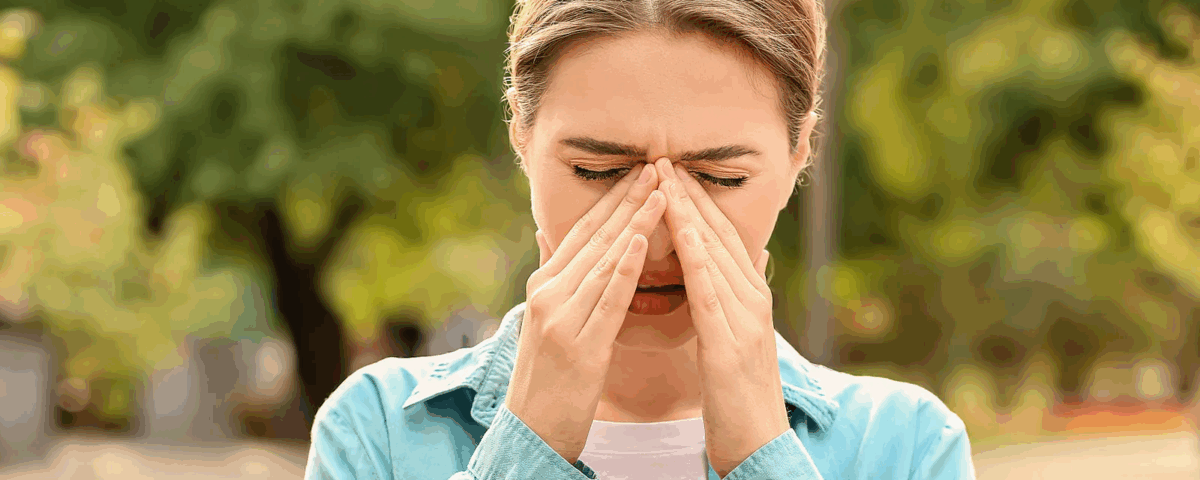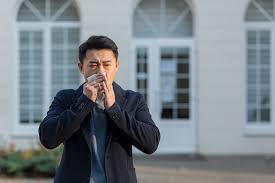
Physical Therapy Exercises for Faster Injury Recovery
August 12, 2025
Best Allergy Specialists for Food Sensitivity Testing
August 12, 2025Seasonal allergies, often called hay fever or allergic rhinitis, affect millions of people every year. When pollen counts rise, many individuals experience sneezing, itchy eyes, nasal congestion, and other uncomfortable symptoms that can disrupt daily life. Fortunately, allergy and immunology experts have developed effective tips and strategies to manage and relieve seasonal allergies.
In this article, we’ll explore what causes seasonal allergies, how your immune system reacts, and practical, expert-approved tips to reduce symptoms and enjoy the seasons more comfortably.
What Causes Seasonal Allergies?
Seasonal allergies occur when your immune system overreacts to airborne allergens like pollen from trees, grasses, and weeds. Normally, your immune system protects you from harmful invaders such as bacteria and viruses. But in allergic individuals, the immune system mistakenly identifies harmless pollen as a threat and triggers an inflammatory response.
This immune response releases chemicals like histamine, leading to common allergy symptoms such as:
- Sneezing
- Runny or stuffy nose
- Itchy, watery eyes
- Scratchy throat
- Coughing
Understanding Allergy and Immunology
Allergy and immunology is a medical specialty focused on diagnosing, treating, and preventing allergic diseases and immune system disorders. Allergists/immunologists help patients understand their triggers and develop personalized treatment plans to reduce symptoms and improve quality of life.
Tips for Seasonal Allergy Relief from Allergy and Immunology Experts
1. Monitor Pollen Counts and Plan Ahead
Keep track of local pollen forecasts through weather apps or websites. On high pollen days, try to stay indoors during peak pollen hours (usually mid-morning to early afternoon).
2. Keep Windows Closed and Use Air Conditioning
Open windows can let pollen indoors. Use air conditioning in your home and car to filter the air and maintain a comfortable environment.
3. Shower and Change Clothes After Being Outdoors
Pollen can stick to your hair, skin, and clothes. Showering and changing clothes after outdoor activities can reduce allergen exposure inside your home.
4. Use High-Efficiency Particulate Air (HEPA) Filters
HEPA filters trap pollen and other allergens from the air. Using a HEPA air purifier in your bedroom or living area can reduce airborne allergens.
5. Manage Symptoms with Medications
Over-the-counter antihistamines, nasal sprays, and decongestants can provide relief. For persistent or severe symptoms, consult an allergist who may recommend prescription treatments or allergy immunotherapy (allergy shots or tablets).
6. Avoid Outdoor Activities During Peak Pollen Times
If possible, schedule outdoor exercise or gardening for late afternoon or after rain, which washes pollen from the air.
7. Keep Indoor Spaces Clean
Regularly vacuum carpets, wash bedding in hot water weekly, and reduce clutter to minimize dust and allergens indoors.
8. Consider Allergy Testing
Allergy testing can identify specific allergens causing your symptoms, allowing for targeted treatment and avoidance strategies.
9. Stay Hydrated and Maintain a Healthy Diet
Drinking plenty of water thins mucus, helping relieve nasal congestion. Eating a balanced diet rich in antioxidants may support your immune system.
10. Practice Stress Management
Stress can worsen allergy symptoms by impacting immune function. Activities like yoga, meditation, and deep breathing can help.
When to See an Allergist/Immunologist
If your seasonal allergies significantly interfere with your life or don’t respond to typical treatments, it’s important to consult a specialist. Allergists can offer advanced testing, personalized care, and treatments such as immunotherapy, which gradually desensitizes your immune system to allergens.
5 FAQs About Seasonal Allergy Relief and Immunology
1. Can allergy shots cure seasonal allergies?
Allergy immunotherapy can significantly reduce symptoms and medication needs over time but doesn’t guarantee a complete cure. It’s a long-term treatment option.
2. Are natural remedies effective for allergies?
Some people find relief with natural remedies like saline nasal rinses or herbal supplements, but these should complement, not replace, medical treatment.
3. Can kids get seasonal allergies?
Yes, children can develop seasonal allergies, sometimes starting as young as toddler age.
4. Do masks help with pollen allergies?
Yes, wearing a mask outdoors during high pollen times can reduce inhalation of allergens.
5. How do I differentiate between a cold and seasonal allergies?
Allergy symptoms usually last longer, don’t cause fever, and include itchy eyes and sneezing, while colds often cause fever and thicker nasal mucus.
Final Thoughts
Seasonal allergies don’t have to control your life. By understanding how your immune system reacts and applying allergy and immunology expert tips, you can reduce symptoms and enjoy the outdoors with less discomfort.
From monitoring pollen to using medications and seeking professional help when needed, there are many effective ways to manage your seasonal allergies. If you experience severe or persistent symptoms, don’t hesitate to consult an allergist for personalized care.





